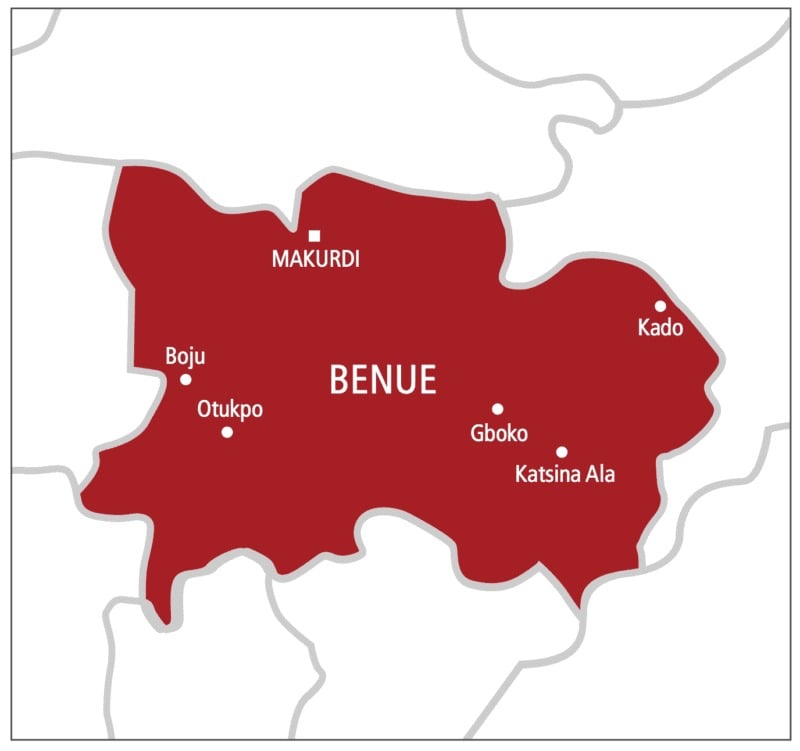THE recent wave of killings in Benue State which reportedly claimed the lives of hundreds of innocent citizens is yet another dark reminder of Nigeria’s ongoing security tragedy. Once again, communities have been razed, families shattered, and livelihoods destroyed. While statistics estimate over 200 people dead in just a few weeks, the human cost cannot be measured in numbers alone. Each life lost represents a voice silenced, a future extinguished, and a nation’s conscience bruised further. The people of Benue have become unwilling tenants of violence. In scenes disturbingly familiar, these communities were invaded, homes torched, and residents slaughtered without provocation. It is a cycle that has persisted for too long—so long that public outrage has dulled and official responses now sound robotic, recycled, and empty. The real tragedy, however, is not just the killings themselves but our collective indifference. In a functioning democracy, the government’s chief responsibility is to protect lives and property. Yet, in many rural areas of Nigeria, especially in Benue—this duty feels optional, sometimes even abandoned. Communities now create their own local vigilantes, armed with dane guns and courage, facing well-armed assailants in the bush. It is a mismatch by every definition, but for many, it’s the only line of defense left.
The silence from the Federal Government, or worse, its occasional downplaying of these atrocities, is damning. There are no firm condemnations. No national addresses. No swift military deployments. Instead, we hear phrases like “unknown gunmen” or “yet-to-be-identified attackers” repeated until they lose meaning. How can killers move in such large numbers, carry out multi-day attacks, and vanish without a trace in 2025 Nigeria? Benue State governor, Hyacinth Alia, has consistently appealed for federal intervention. While the recent visit of security operatives is welcome, it must translate into tangible action—arrests, prosecutions, and sustained presence. Temporary visits will not break the cycle of violence. Real security reform, intelligence-led operations, and political will are needed to ensure that this decade-long bloodletting does not become permanent history. It is also worth asking difficult questions. Who benefits from this violence? Why does it recur, often with the same patterns and in the same regions? Many analysts have pointed to the farmer-herder conflict, land disputes, and even political sabotage as root causes. While these may contribute, none of them justifies the level of impunity with which communities are attacked. It’s not merely about cattle or land—it’s about justice and accountability.
Ethno-religious undertones further complicate the conflict, and any real solution must recognise this. Peace cannot be enforced by the barrel of a gun alone. It requires healing, honest dialogue, and restitution. It also demands a fair and effective justice system that does not allow one group to be criminalised while another is shielded. The media, too, must rise to the occasion. Coverage of the Benue killings often lacks the urgency and prominence given to crises in other parts of the country. When 50 people are killed in cold blood in a community, it should not be buried on page 10 of a national daily. It should dominate headlines, mobilise public opinion, and call leaders to account. The lives of rural Nigerians are not less valuable than those in urban centers. But the weight of responsibility also lies on us as citizens. We cannot afford to be numb to the bloodshed. The day we become comfortable with weekly mass burials in any part of Nigeria is the day we lose the moral right to demand safety, justice, and progress for ourselves.
ALSO READ FROM NIGERIAN TRIBUNE: JAMB sets 150 as cut-off mark for universities
Benue is bleeding, and our silence is salt in its wounds. If we fail to speak, act, and demand justice, we risk becoming a nation where tragedy is routine and outrage is rationed. Nigeria must not let this happen. Let us not wait until the killings reach our own doorsteps before we feel the pain. The time to act is now.
•Awe, a 300-level Mass Communication student at Adekunle Ajasin University, Akungba Akoko, Ondo state, is an intern with the Nigerian Tribune.






